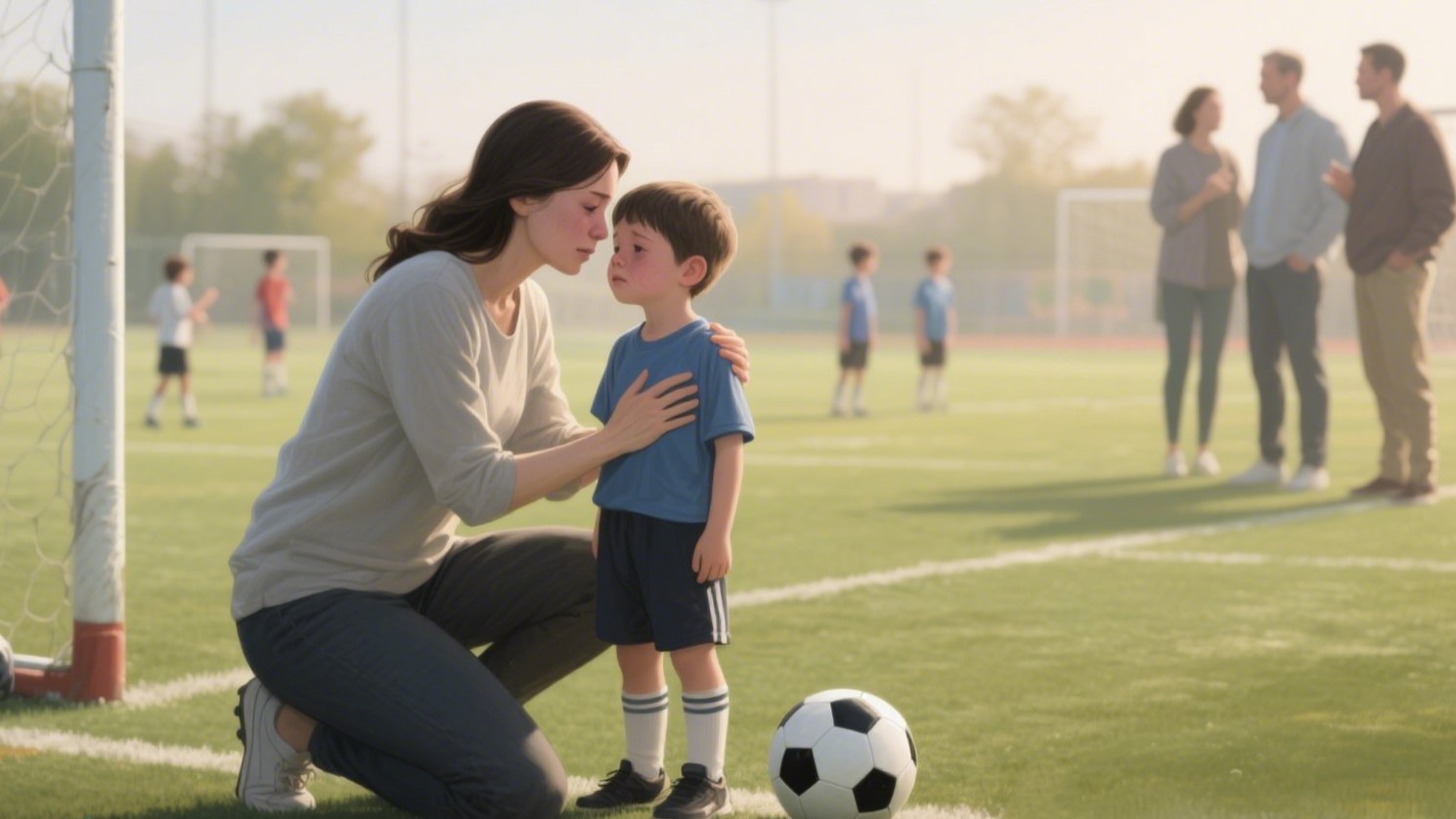I’m a full-time working mom of two school-aged boys. Like many parents, my husband and I have navigated our fair share of preschool drop-offs, sick days, birthday parties, and late-night laundry. But as our kids have gotten older, we’ve entered new, more complicated territory: school-age sports—and the social hierarchy that comes with them.
For my older son, team sports weren’t a natural fit. He’s always been more at ease building things at home than competing on the field. But two years ago, after a couple of baseball seasons, he decided to try soccer. It was fast-paced, and more importantly, one of his close friends was on the team.
At first, he loved it. He clicked with the coach and was excited to bond with teammates. But midway through the season, something changed. Practices became a struggle. He resisted going, became withdrawn, and even cried on the way. When I asked what was wrong, he shrugged it off, saying, “I’m fine.”
Eventually, the truth came out. He was clashing with teammates. They saw him as “different” and began to treat him as a troublemaker. I couldn’t point to one specific incident that started it all—like many playground rifts, it was likely a mix of things. But what hurt the most was realizing that my son was internalizing the negativity.
He began acting out. Feeling left out and insecure, he tried to push back in disruptive ways. He made rude comments. He even emptied other kids’ water bottles during a game—an extreme act of frustration after being teased by another player.
Word spread quickly. Rumors, fueled by kids overhearing adult conversations, painted my son as “the problem.” One moment that still stings came from a fellow soccer mom—who also happened to be a teacher at his school. She casually referred to him as “weird.”
I couldn’t help but think: if my son were a girl, would his behavior—playing on the sidelines, being sensitive, struggling with group dynamics—be seen differently?
I’ll admit it: I wish I’d stepped in earlier. His coach did try to manage the situation, but without additional support or clear communication, we were left to figure things out alone.
Thankfully, we’ve moved on from that season. My son apologized to his teammates, and we took a break from team sports. We tried martial arts and swimming instead—individual pursuits where he could regain confidence without the same social pressure.
Talking to a trusted friend helped shift my mindset. She reminded me that “being involved” doesn’t mean overextending ourselves. We’ve since become more thoughtful about how and when we volunteer—and more focused on supporting each child in their unique path.
This experience taught me that not all kids thrive in traditional team environments. And not all parents fit neatly into the “team mom” mold. That’s okay.
We now prioritize connection over competition. We cheer for effort, not perfection. We’ve created a home environment where our boys can feel supported, even when things get tough.
Along the way, I’ve also learned to be more discerning in who I let into our parenting circle. I’ve distanced myself from people who value performance over empathy—and drawn closer to parents who care more about kindness than status.
There is no one right way to raise a child. But there is a right feeling: when your child knows they’re safe, accepted, and loved for exactly who they are.








